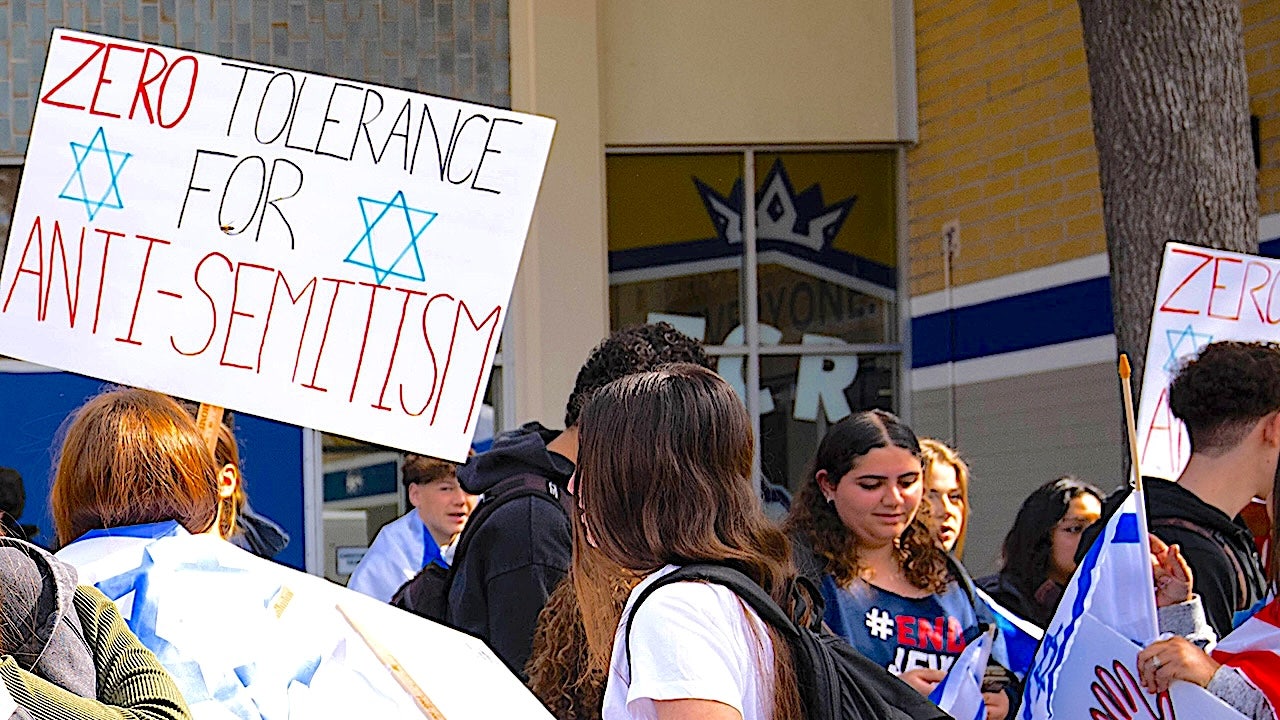Trauma Expert Warns: Antisemitism Inflicts Lasting Scars on Jewish Children
Rising antisemitism across U.S. schools and campuses is not just a social crisis—it’s a mental health emergency for Jewish kids. In a powerful new op-ed, a leading trauma expert reveals how hate-fueled bullying triggers profound psychological wounds, echoing historical traumas and leaving generations vulnerable.
The Hidden Crisis: Antisemitism as a Form of Trauma
Antisemitism has surged in recent years, with incidents up 140% in the U.S. from 2022 to 2023, according to the Anti-Defamation League. For Jewish children, this means daily encounters with slurs, threats, and exclusion in classrooms, hallways, and online spaces. Rabbi Dr. David Fox, a forensic psychologist and director of crisis and trauma services at Chai Lifeline, describes this as an “insidious” trauma in his September 3, 2025, Fox News op-ed.
Fox, with decades of experience treating trauma survivors, explains that persistent hate acts as a chronic stressor. The American Psychological Association notes that bias-based bullying leads to anxiety, depression, and physical symptoms like headaches or stomach issues in affected children. A 2021 study shows such discrimination doubles the risk of clinical depression in teens.
Surveys reveal one in four American Jewish students faces antisemitic incidents, with higher rates on college campuses including assaults and social rejection. Fox emphasizes that this isn’t mere teasing—it’s a public health issue scarring young minds.
Rabbi Dr. David Fox: A Voice from the Frontlines
Rabbi Fox’s expertise stems from his work with Chai Lifeline, supporting families facing illness and crisis. In his piece, he draws parallels between antisemitic bullying and overt violence, noting symptoms mirror those in terror victims: hypervigilance, sleep disturbances, and emotional shutdown.
He recounts treating children who internalize shame, hiding their Jewish identity to avoid harm. “Every rejecting slur in a hostile classroom foments distress, leading to lifelong scars,” Fox writes. His call to action urges schools and communities to treat antisemitism as trauma, not just bias.
Intergenerational Echoes: From Holocaust to Today
Antisemitism’s impact extends beyond the individual, tapping into intergenerational trauma. Jewish families often carry Holocaust echoes, with a 2022 study showing elevated stress markers in survivors’ descendants, indicating biologically embedded effects. Modern incidents reactivate these fears, turning “Never Again” into a lived anxiety.
Research by Dr. Rachel Yehuda at Mount Sinai found epigenetic changes in Holocaust survivors’ children, altering stress hormone regulation like the FKBP5 gene. This suggests today’s antisemitism could compound inherited vulnerabilities, as Fox notes: “Today’s realities reactivate dormant fears extinguished 80 years ago.”
Post-October 7, 2023, therapists Miri Bar-Halpern and Jaclyn Wolfman coined “traumatic invalidation” for dismissed Jewish grief, worsening scars through silence or blame. Their 2025 paper highlights how this denial— from peers to professionals—deepens isolation.
Effects on Jewish Children: Academic, Emotional, and Identity Wounds
The scars manifest in multiple ways. Academically, trauma drains focus, causing grades to drop and disengagement. Emotionally, children battle anxiety, depression, and low self-esteem, with some developing psychosomatic issues.
Identity confusion is profound: Stigma leads to internalized shame, fracturing self-image and family bonds. Fox warns of “splintered families” as kids hide their heritage, hindering healthy development.
Long-term, this fosters a cycle: Children of survivors report nightmares of pursuit, absorbing parental distress. Without intervention, it risks PTSD-like symptoms into adulthood.
Expert Insights and Community Reactions
Beyond Fox, experts like Bar-Halpern stress validation’s role: “We’re not asking for special treatment—just the care any hurting client deserves.” Her work with Parents for Peace aids families navigating extremism and hate.
Public response is mixed but urgent. Social media amplifies stories of school walkouts, like at El Camino Real Charter High in 2024, protesting incidents. Therapists report rising Jewish isolation in professional circles, with antisemitism now “the rule” in some settings.
Critics, including some in therapy communities, face backlash for minimizing Jewish pain, as seen in Bessel van der Kolk’s 2025 controversy over antisemitic remarks. Yet, voices like Halina Brooke of the Jewish Therapist Collective advocate for culturally sensitive care.
Why U.S. Readers Should Care: Broader Societal and Personal Impacts
For American families, this hits home amid political divides and campus unrest. Economically, traumatized kids face future barriers: Lower academic performance means reduced opportunities, straining communities.
Politically, it fuels debates on education and hate crimes, with states enhancing school security but risking over-policing. Lifestyle-wise, Jewish parents grapple with overprotectiveness, echoing survivor patterns and heightening family anxiety.
Technology amplifies harm via online harassment, demanding better digital safeguards. Sports and social activities, once safe, now host exclusion, as seen in bans on “Zionists” from teams. All Americans benefit from addressing this to foster inclusive societies.
Conclusion: Healing the Scars and Building Resilience
Rabbi Dr. David Fox’s stark warning spotlights antisemitism’s enduring toll on Jewish children, from immediate distress to intergenerational echoes. Recognizing it as trauma is step one; action—through education, therapy, and policy—follows.
The outlook demands hope: With validation and support, children can thrive, turning scars into strength. U.S. communities must unite to protect young Jews, ensuring no child bears hate’s weight alone. As Fox urges, safeguarding their mental health secures humanity’s future.
